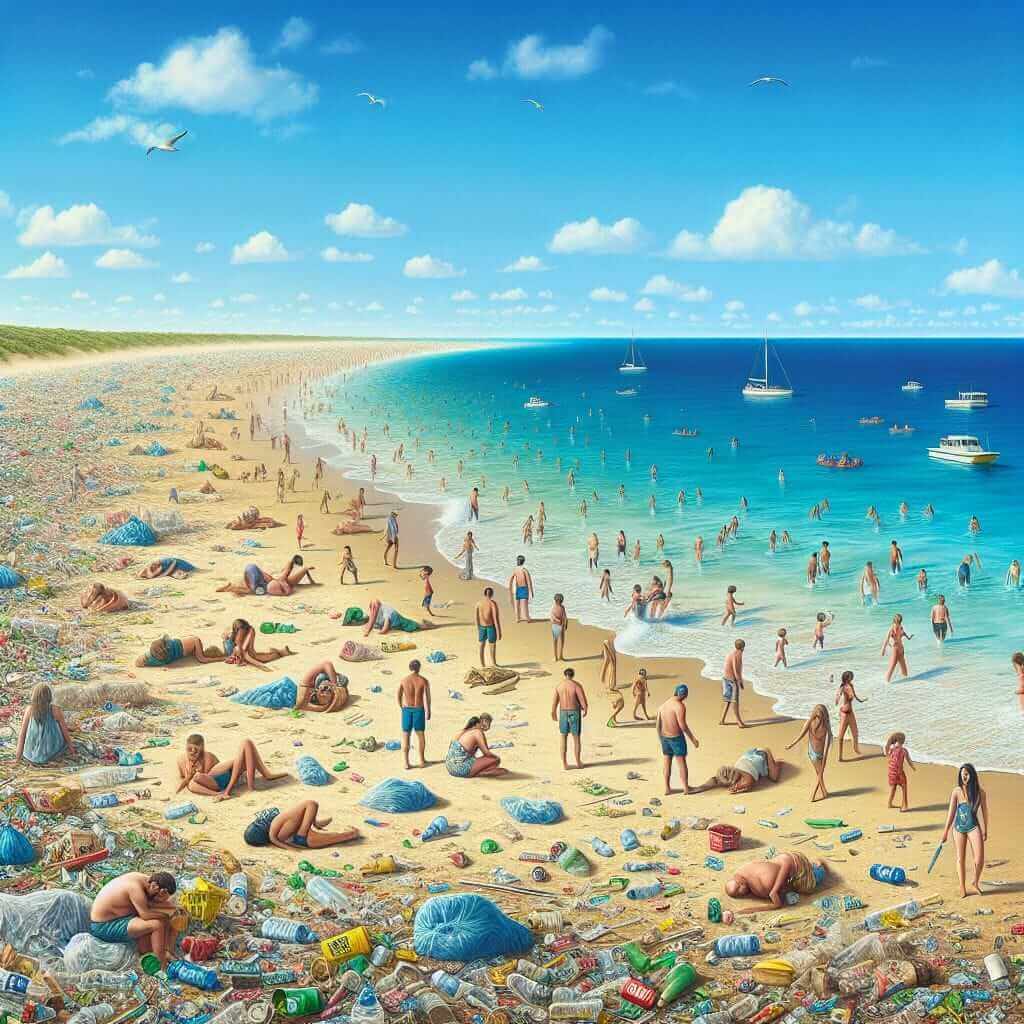The IELTS Reading section often presents passages on diverse topics, including current trends and global issues. One of the subjects gaining prominence is sustainable tourism. Understanding the challenges in sustainable tourism not only prepares you for potential questions but also equips you with necessary vocabulary and insights. Given the increasing attention to environmental issues and sustainable practices, it is highly likely that this topic may recur in upcoming IELTS exams.
Reading Passage: Challenges in Sustainable Tourism
Sustainable Tourism: A Double-Edged Sword
Sustainable tourism aims to minimize environmental impact while maximizing economic benefits for local communities. Despite its noble goals, achieving genuinely sustainable tourism faces numerous obstacles.
1. Environmental Degradation
Tourist activities can lead to environmental degradation. Popular destinations often struggle with issues like pollution, habitat destruction, and overuse of natural resources. For example, the Great Barrier Reef faces severe coral bleaching due to increased tourist activity coupled with climate change.
2. Economic Imbalance
While tourism can boost local economies, it may also lead to economic disparity. The influx of tourists often shifts the focus of local economies from traditional industries to tourism, creating dependency. Additionally, the profits from tourism frequently go to foreign investors rather than benefiting the local community.
3. Infrastructure Challenges
Inadequate infrastructure can be a significant challenge. Many regions lack the proper waste management systems, transportation, and facilities to cater to a large number of tourists sustainably. This can lead to further environmental and socio-economic problems.
4. Cultural Erosion
The influx of tourists can also threaten local cultures and traditions. Tourism often leads to the commercialization of indigenous cultures, which can dilute unique cultural practices and diminish their significance.

Questions
Question Type: Multiple Choice
- What is one of the major problems faced by popular tourist destinations?
- a) Increase in local traditions.
- b) Decrease in tourism revenue.
- c) Environmental degradation.
- d) Improved waste management systems.
Question Type: Identifying Information (True/False/Not Given)
- Not Given Tourism always benefits local communities.
- True Tourists can contribute to habitat destruction.
Question Type: Matching Information
- Match each challenge (1-4) with the corresponding consequence:
- Environmental Degradation: ____
- Economic Imbalance: ____
- Infrastructure Challenges: ____
- Cultural Erosion: ____
Answer Key
- c) Environmental degradation. – Tourist activities can lead to numerous environmental issues.
- Not Given – The text does not provide information about tourism always benefiting local communities.
- True – The passage mentions that tourists can contribute to habitat destruction.
-
- Environmental Degradation: habitat destruction
- Economic Imbalance: dependency on tourism
- Infrastructure Challenges: inadequate waste management systems
- Cultural Erosion: commercialization of indigenous cultures
Mistakes to Avoid
- Overlooking Keywords: Pay attention to all the keywords and phrases. For example, “local community” and “foreign investors” have significant contextual differences.
- Misinterpreting Information: Ensure you comprehend whether the information is explicitly stated, implied, or not given.
Vocabulary
- Degradation (noun /ˌdɛ.grəˈdeɪ.ʃən/): The condition or process of degrading or being degraded.
- Bleaching (noun /’bliːtʃɪŋ/): The process of making something white or lighter in color, here referring to coral.
- Disparity (noun /dɪ’spærɪti/): A great difference.
Grammar
Complex Sentences with Subordinate Clauses:
- Use complex sentences to convey detailed information. For example: “Although sustainable tourism aims to minimize environmental impact, achieving truly sustainable practices faces numerous obstacles.”
Formula:
- Main Clause + Subordinate Clause
- Example: “Tourist activities can lead to pollution because many popular destinations lack adequate waste management systems.”
Tips for a Higher IELTS Reading Score
- Skim and Scan: Quickly skim the passage to understand the general idea, then scan for specific keywords related to the questions.
- Practice Regularly: Use a variety of IELTS reading practice tests to expose yourself to different topics and question types.
- Develop Vocabulary: Focus on topic-specific vocabulary, such as terms related to tourism and sustainability.
For more practice on related topics, you can visit Development of Sustainable Tourism and The Impact of Climate Change on Tourism.
Happy studying, and best of luck on your IELTS exam!